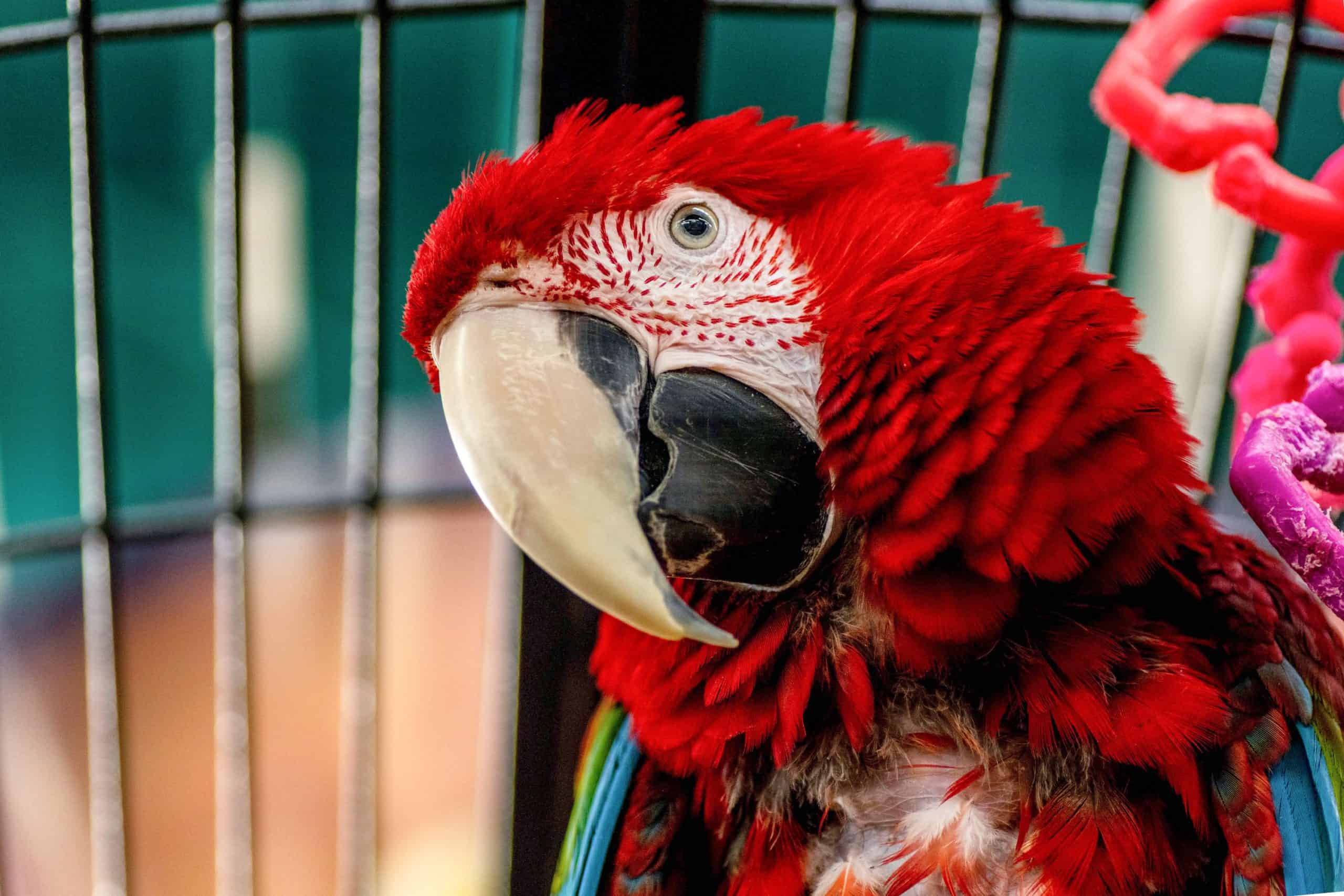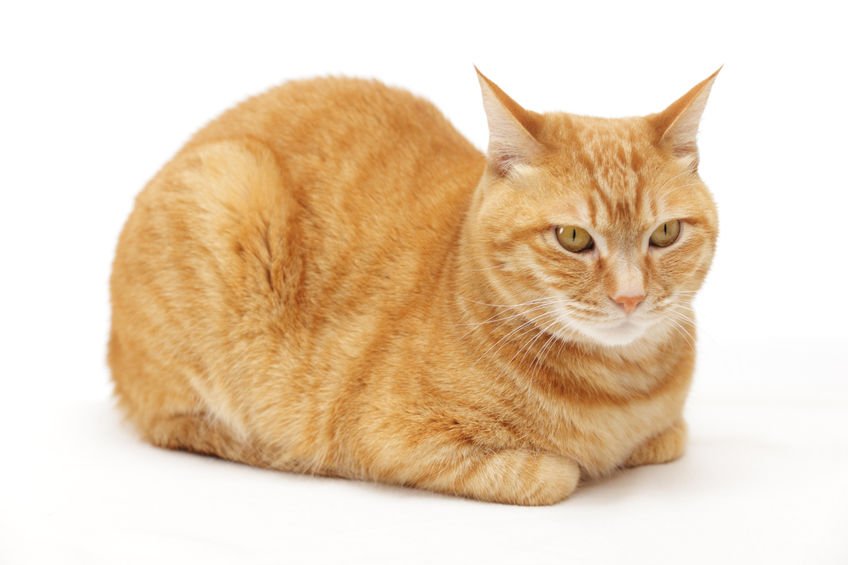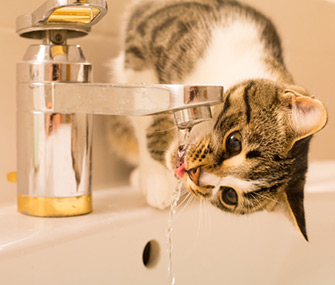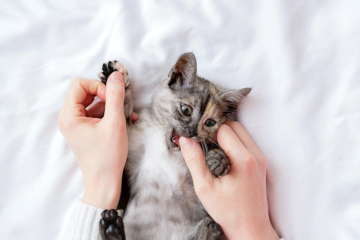Macaws, a kind of bird that are often owned as pets, can live up to 60 years in captivity. While wild macaws have a life expectancy of 25 to 30 years, those kept in captivity can live much longer due to proper care and nutrition.
Macaws are big, brilliantly colored parrots that make great pets due to their exceptional talking ability, social nature, and striking feathers. If you are thinking of getting a macaw, it is essential to understand how long these birds can live in captivity. Macaws can live up to 60 years in captivity with proper nutrition, exercise, and care. They are omnivores that require a balanced diet of pellets, fresh fruits, and vegetables, along with plenty of space to fly and toys for mental stimulation. Owners need to be committed to providing a macaw with a safe and clean environment, regular vet checkups, and a suitable diet. Proper care can prolong a macaw’s life and create a rewarding and fulfilling relationship between the owner and the bird.
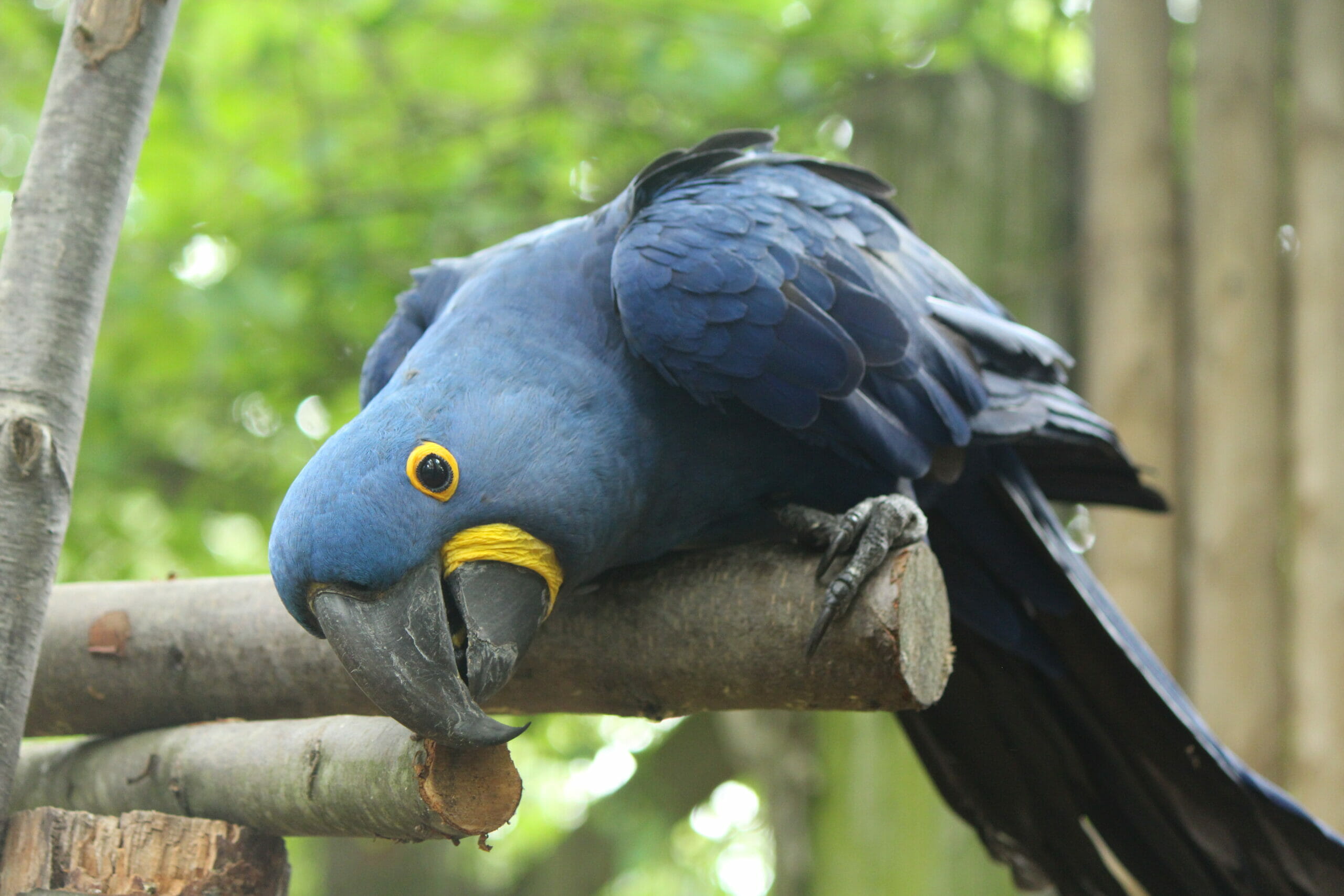
Credit: southwickszoo.com
The Average Lifespan Of Macaws In Captivity
Macaws are among the most long-lived birds in captivity, with the potential to live up to 50–60 years or more. The lifespan of a macaw in captivity is influenced by various factors, including genetics, environment, diet, exercise, and veterinary care.
One way to determine the lifespan of a macaw is to review their lifespan records. Observing the bird’s behavior and physical signs, such as the health of their feathers and eyes, can also offer insights into their overall health and longevity.
With proper care and attention to their needs, a macaw can thrive and live a healthy and happy life in captivity for many years.
Understanding Genetics And The Lifespan Of Macaws
Macaws are intelligent and beautiful birds that are frequently kept as pets. When understanding their lifespan, genetics plays a crucial role. Inherited diseases, mutations and hybridization can all affect the lifespan of a macaw. Genetics can help predict how long a macaw may live, but it’s not always a reliable indicator.
Macaw lifespan records should also be taken into consideration when trying to predict their lifespan. Any prospective owners must appreciate the importance of responsible pet ownership. This includes providing a suitable habitat, a healthy diet, and proper veterinary care. With all these factors in mind, macaws are capable of living for many years in captivity.
Why Parrots Live Longer: The Fascinating Study of Parrot Brains
The Impact Of Environment And Diet On Macaw Lifespan In Captivity
Macaws are popular pets that can live up to 50 years or more in captivity. The environment in which they live plays a crucial role in their lifespan. Macaws require a large cage that provides enough space for them to move around freely.
They also prefer a high level of humidity and temperature. Lighting should mimic natural sunlight as closely as possible. Macaws require a varied diet that shouldn’t consist of only seeds. They should consume fresh fruits, vegetables, nuts, and grains to maintain their health.
Some foods, such as avocado, chocolate, and caffeine, should be avoided as they’re toxic to macaws. Providing healthy living conditions and a balanced diet will keep these colorful birds happy and healthy for many years.
The Importance Of Exercise And Veterinary Care For Macaws In Captivity
Macaws are long-lived birds that can live up to 80 years in captivity with proper care. Exercise is crucial for the physical and mental well-being of macaws. Some types of exercises include chewing toys, climbing trees, and spreading wings. Exercise can also help prevent health issues like obesity, heart disease, and muscle atrophy.
However, excessive exercise can also lead to injuries. Common health issues in macaws include feather plucking, beak overgrowth, and respiratory infections. Regular veterinary care is essential for macaws, including annual checkups, vaccinations, and emergency medical care. With proper exercise and veterinary care, macaws can live a long and healthy life in captivity.
Frequently Asked Questions Of How Long Do Macaws Live In Captivity
How Long Do Macaws Typically Live In Captivity?
Macaws typically live between 30-50 years in captivity, depending on the species. Larger macaws tend to have a longer lifespan than smaller species. However, if they are well-cared for and provided with a proper diet, exercise, and medical attention, they can live longer than the average lifespan.
What Factors Affect The Lifespan Of A Captive Macaw?
Several factors can affect the lifespan of captive macaws, including diet, exercise, living conditions, medical care, and genetics. Macaws that are kept in clean, safe environments with access to nutritious food and medical attention are likely to live longer than those in unhealthy conditions.
Do Macaws Live Longer In Captivity Than In The Wild?
Yes, captivity can extend the lifespan of macaws. Macaws in captivity do not have to face predators, disease, and other risks that they face in the wild. They receive a consistent food supply and access to medical care, which can help them to live longer than they would in the wild.
What Can Be Done To Increase The Lifespan Of A Captive Macaw?
To increase the lifespan of a captive macaw, it’s essential to provide a healthy diet that includes fresh fruits, vegetables, and nuts. Regular exercise is also important to keep them physically fit. Additionally, providing a safe and clean environment, avoiding stress, and seeking prompt medical attention when necessary can help increase their lifespan.
Conclusion
Macaws are beautiful birds that are cherished by many, leading to the rise of their demand in captivity. With attentive care and a healthy environment, macaws can live for a long time in captivity. However, it’s essential to keep in mind that captivity is not a natural habitat for these birds, and longevity depends on their environment, social interaction and care given by their owners.
Owners should provide them with a balanced diet, spacious living space, regular exercise and regular veterinary checkups to ensure their well-being in captivity. It’s also important to note that macaws can develop behavior issues if kept in isolation, leading to severe health problems.
Overall, the life span of a macaw in captivity can range from around 30 to 50 years. It’s the responsibility of the owners to ensure that during their lifetime in captivity, these birds are provided with a comfortable and safe space, leading to a long and happy life.
{ “@context”: “https://schema.org”, “@type”: “FAQPage”, “mainEntity”: [ { “@type”: “Question”, “name”: “How long do macaws typically live in captivity?”, “acceptedAnswer”: { “@type”: “Answer”, “text”: “Macaws typically live between 30-50 years in captivity, depending on the species. Larger macaws tend to have a longer lifespan than smaller species. However, if they are well-cared for and provided with a proper diet, exercise, and medical attention, they can live longer than the average lifespan.” } } , { “@type”: “Question”, “name”: “What factors affect the lifespan of a captive macaw?”, “acceptedAnswer”: { “@type”: “Answer”, “text”: “Several factors can affect the lifespan of captive macaws, including diet, exercise, living conditions, medical care, and genetics. Macaws that are kept in clean, safe environments with access to nutritious food and medical attention are likely to live longer than those in unhealthy conditions.” } } , { “@type”: “Question”, “name”: “Do macaws live longer in captivity than in the wild?”, “acceptedAnswer”: { “@type”: “Answer”, “text”: “Yes, captivity can extend the lifespan of macaws. Macaws in captivity do not have to face predators, disease, and other risks that they face in the wild. They receive a consistent food supply and access to medical care, which can help them to live longer than they would in the wild.” } } , { “@type”: “Question”, “name”: “What can be done to increase the lifespan of a captive macaw?”, “acceptedAnswer”: { “@type”: “Answer”, “text”: “To increase the lifespan of a captive macaw, it’s essential to provide a healthy diet that includes fresh fruits, vegetables, and nuts. Regular exercise is also important to keep them physically fit. Additionally, providing a safe and clean environment, avoiding stress, and seeking prompt medical attention when necessary can help increase their lifespan.” } } ] }
